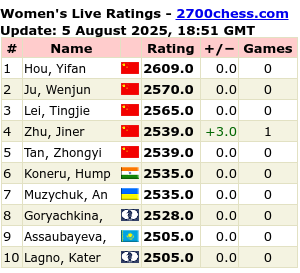
(click on the mosaic to have a clear view of the images in the mosaic – Hawker’s Hut is in the first image)
Photo updates
As I promised this morning, I’m back to tell you about Hawker and his hut. Hawker was a vicar, very famous and the same time eccentric. He built the Rectory Farm with his own money – as the previous one was beyond repair. The Rectory has five chimneys which represented the five parishes where he served previously. He cared for education and built the local primary school – St Mark’s School. The school was built in the shape of a cross. As a result of the Rectory and school, he was a poor man for the rest of his life. Hawker was not only a vicar, but also a poet. He also introduced the Harvest Festival like we know it today. On the cliffs of Morwenstow – he built a hut from driftwood. In his hut he used to read his mail and write his poems. Apparently he enjoyed getting mail and was quite sad/upset when the postman didn’t bring him any mail. What made him eccentric, – apart from other likes/dislikes – is the fact that he smoked opium! He was married twice and his first wife was about 20 years his senior. On his death-bed, 14 August 1875, he was received into the Catholic Church.
We stayed at a B&B in Morwenstow, a tiny hamlet. Shop is about 1,5 miles from Morwenstow towards Bude. Shop is a tiny village where you will find a primary school, a tiny local shop with a post office and a few houses. Walking distance from the B&B – towards the cliffs of Morwenstow – is Crosstown, also a tiny hamlet. It is when walking towards Crosstown, that you experience the fresh breeze blowing inland from the jagged coastline and this is where you will find Hawker’s hut, the smallest property of the National Trust. I borrowed a small booklet about this corner of Cornish-land from Carol at the B&B and will need to contact her in order to get the title of the booklet. I think I got distracted by Hector, their dog and I didn’t even finish all my writing about Hawker from the booklet. I’m going to quote what I have for you to enjoy. I’ve also found some of his poems and a ballad, which is almost like a national anthem for the people of Cornish-country. In my next entry I will have pictures about Boscastle, a beautiful coastal fisherman’s town. In 2004 Boscastle was flooded and I was surprised to see how the town has recovered.
Robert Stephen Hawker began his priesthood at Morwenstow in 1834. He became one of the best-known, most talked-about clerics in the kingdom. His exploits coping with shipwrecked sailors alone made him a legend in his lifetime. His parish had a background of smuggling and wrecking, non-conformity and a degree of poverty. His people were mostly farmers and labourers and many of the labourers were poverty stricken. He immediately identified himself with the people and the place and put himself on the map and in the history books as one of the most colourful figures of all time in the West country. “Footprints of Former Men” is one book written by him. He had long hair but loathed beards and was proud of his ears which had no lobes – saying the Duke of Wellington had such ears and that the same features could be traced in all the acurate pictures of Our Lord. Oscar Wilde said “One should always be a little improbable.” R. S. Hawker was more than a little. He had quirks and passions – strong dislikes. Hawker perpetuated the legend (some say he invented it) that the saint Morwena was the daughter of Breachan, a Celtic King who lived in the ninth century. He claimed that he had seen the ghost of saint Morwena. Morwenstow origins from the Celtic word “Morwen” – which means “white or fair as the sea” – and the Saxon word “stow” which means “Church”. John Betjeman visited the parish in the 1930’s and wrote in his research notes: “Out of the trees rise the vicarage chimney stacks in the form of miniature church towers, part of the Gothic fancy of the builder, the Rev RS Hawker, its poetic and Tractarian vicar…”
Are they not all Ministering Spirits?
By Robert Stephen HawkerWe see them not – we cannot hear
The music of their wing –
Yet know we that they sojourn near,
The Angels of the spring!They glide along this lovely ground
When the first violet grows;
Their graceful hands have just unbound
The zone of yonder rose.I gather it for thy dear breast,
From stain and shadow free:
That which an Angel’s touch hath blest
Is meet, my love, for thee!The Butterfly
By Robert Stephen HawkerBird of the moths! That radiant wing
Hath borne thee from thine earthly lair;
Thou revellest on the breath of spring,
A graceful shape of woven air!The glories of the earth are thine,
The joyful breese, the balmy sky;
For thee the starry roses shine,
And violets in their valleys sigh.Yet was the scene as soft and bright
When thou wert low in wormy rest:
The skies of summer gushed with light,
The blossoms breathed on Nature’s breast.But thou that gladness didst not share,
A cave restrained that shadowy form;
In vain did fragrance fill the air,
Dew soften and the sunbeams warm.Dull was thy day – a living death,
Till the great change in glory came,
And thou, a thing of life and breath,
Didst cleave the air with quivering frame!My son! my son! read, mark, and learn
This parable of summer skies,
Until thy trusting spirit yearn,
Like the bright moth, to rush and rise.Lo! round and near, a mightier scene,
With hues that flesh may not behold;
There all things glow with loveliest mien,
And earthly forms have heavenly mould!Oh! for that place of paths divine,
By the freed soul in rapture trod;
The upper air, the fields that shine,
For ever in the light of God!‘The Song of the Western Men’.
A good sword and a trust hand!
A merry heart and true
King James’s men shall understand
What Cornish lads can do!And have they fixed the where and when?
And shall Trelawny die ?
Here’s twenty thousand Cornish men
Will know the reason why!Out spake our Captain brave and bold
A merry wight was he;
‘If London Tower were Michael’s hold’
We’d set Trelawny free‘We’ll cross the Tamar, land to land:
The Seven is no stay:
With ‘one and all’, and hand in hand;
And who shall bid us nay?.‘And when we come to London Wall,
A pleasant sight to view,
Come forth! Come forth!
Ye cowards all;Here’s men as good as you‘Trelawny he’s in the keep and hold:
Trelawny he may die
But here’s twenty thousand Cornish bold
Will know the reason why!
by Robert Stephen Hawker 1825Crosstown, where there is a 13th Century pub, “The Bush-Inn”. Crosstown is about 500m from the B&B. It’s also the road towards Hawker’s Hut. The Rectory Farm is about 500m from the Bush-Inn. The Rectory Farm is the 2nd image top-left in the mosaic-image.
The road to Shop…at this fork – which is about 800m from the B&B – you turn right…
Inside Hawker’s hut.
The roof of Hawker’s hut.
The church of St Morwenna and St John the Baptist at Morwenstow. There are more than 40 graves – mostly from shipwrecked sailors.
The church from a different view.
A ship’s figurehead serves as a grave marker in the churchyard at the church of St Morwenna and St John the Baptist, Morwenstow.
St John’s Well
If you look closely, you will see the graves of the soldiers.
This is Hector, the B&B-dog, he is about 12 years old.
Click here for the route and details. This walk is about 2-3 miles. The link will open in a new window.This incident happened on Friday and we were there Friday till 11 am before we left the area. See the original news article here. The link will open in a new window.
Sea search called off for missing man
Sunday 12th April 10:00
THE search has been called off for a man who went missing off the Cornish coast. A massive rescue operation was launched on Friday evening after two men got into difficulties on cliffs in North Cornwall. One person was rescued by emergency services halfway down the cliff face at Hawker’s Hut at Morwenstow, north of Bude. He was winched to safety by the helicopter crew from RNAS Culdrose.
The search, which included Bude lifeboat crews, the Bude Coastguard team and officers from Devon and Cornwall police, continued for the second man on Friday night and Saturday before it was abandoned yesterday afternoon. The name of the missing man, who is in his early 20s, is not known at this time.
The circumstances surrounding the rescue operation are still unclear. Speaking on Firday, a spokesman for Bude Lifeboat Station said: “We found clothes belonging to the second casualty at Hawker’s Hut. I don’t think the two people were swimming – it’s more likely that they were climbing down the cliff to see the rock pools and then got into trouble.
“We have a big spring tide at the moment which is very powerful – we are just hoping that he’s not in the water.”



































